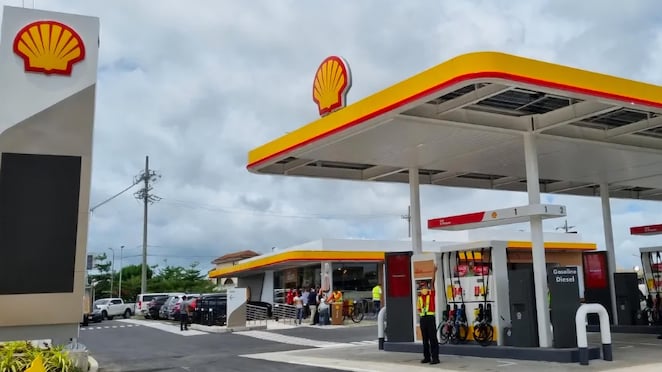How India's fuel stations must transform to meet modern consumer expectations
Kartiki Karihaloo - By proactively adapting to the evolving new consumer expectations, fuel stations can secure their place not just as service points, but as integral and cherished parts of the community.

When someone pulls up at a fuel station, what do they really want? Fuel, of course, but is there more to creating a better fuelling experience for customers? To answer this, we must look at the confluence of three pivotal factors that are redefining what it means to refuel in India today.
First, as India's economic backbone—the middle class—continues moving up the pyramid towards affluence, they are becoming increasingly brand conscious, re-evaluating the definition of value, and thus expect a superior consumer experience. This demographic is increasingly seeking services that not only meet their needs but also go a step further. Second, today’s consumers expect more than just a transaction; they are looking for a 'value-add', demanding enriched experiences that offer more than the basics. To understand this better, consider that a watch is not just a watch; it is real-time access to a wealth of health data, push notifications, and more; similarly, a fuelling experience is much more than refuelling.
Additionally, the rise of electric vehicles (EVs) introduces a new, significant factor into the mix. Charging EVs takes significantly longer than refuelling at traditional fuel stations. Specifically, according to data from our analysis, people are spending an average of 40 minutes plugged in—significantly longer than the average petrol buyer's dwell time. This extended dwell time presents a substantial opportunity for fuel stations. According to the International Energy Agency’s ‘Global EV Outlook 2022,’ India’s EV charging market is expected to reach USD 190 billion globally by 2030. India's growth in demand for EV charging, coupled with the extended time EV users spend at charging stations, offers fuel stations a compelling proposition to transform into multi-service hubs.
All these factors present a unique opportunity for oil marketing companies (OMCs) to engage customers in ways previously unimagined in the context of the fuel-and-go experience. They can add a new service dimension to India’s overall economic growth, by the massive charging network that will grow to meet India’s EV aspirations – provided our fuel station experience evolves in new ways.
The Evolving Moves
According to an Accenture report, Indian Oil Marketing Companies (OMCs) are transitioning into a more strategic phase of non-fuel retail (NFR) development. This evolution is not just about supplementing income but is becoming a primary revenue source, especially as the viability of traditional fuel sales fluctuates.
In response to these evolving needs, Indian fuel retail is witnessing a reinvention through several innovative differentiators. The first thing that a customer sees at these new fuel stations is a wider range of non-fuel retail (NFR) offerings, inclusive of food, a convenience store, and vehicle care. Moreover, prioritising health, safety, and cleanliness is becoming a hallmark of modern fuel stations.
The commitment to diversity, equity and inclusion at these modernised stations also plays a vital role in building consumer trust. Showcasing a workforce that includes women, LGBTQ+ individuals, and persons with disabilities not only reflects progressive values but also reinforces the station as a safe and welcoming place for all. Notably, extending this experience of warmth and hospitality to people from all rungs of society – from business executives to blue-collar and gig economy workers – builds a greater cache of goodwill and positive conversation. Additionally, the sensory experience at these stations significantly enhances customer satisfaction. Clean, comfortable, and visually appealing environments can transform a mundane stop into a pleasant pause in the day’s journey.
Location strategy and tailored offerings are also key. By aligning services and products with the specific needs of local demographics—from office workers needing a quick coffee to students looking for a snack—stations can maximise relevance and appeal. This precision in service is powered by data analytics, ensuring that offerings are customised in a way that hits the mark.
As India’s consumer landscape evolves, fuel stations must adapt their approach accordingly. By proactively adapting to the evolving new consumer expectations, fuel stations can secure their place not just as service points, but as integral and cherished parts of the community. That said, first and foremost, get the base product offering right – the fuel that is the heart of the station experience –before beginning the journey of transformation.
As appeared in BW Marketing World